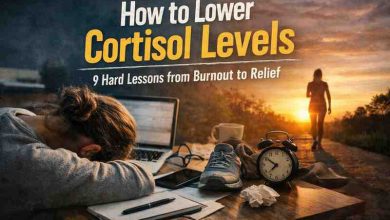
Unravelling the Impact of Post-Traumatic Stress Disorder on Mental Health
Introduction
Post-Traumatic Stress Disorder (PTSD) is an anxiety condition triggered by a traumatic or life-altering experience. It is a serious mental health condition which can affect anyone at any age, from any walk of life. PTSD can often lead to debilitating physical, emotional, and cognitive symptoms, such as flashbacks, nightmares, hyper vigilance, sleep disturbance, depression, and hyperarousal (fight or flight).
The consequences of PTSD can be severe and have a significant impact on a person’s mental health. PTSD can cause a person to experience feelings of deep anxiety, despair, and hopelessness. People with PTSD can develop secondary conditions such as depression and substance abuse, or become suicidal. As a result, it is important to be aware of the signs and to talk to a doctor or therapist about getting help.
What Causes Post-traumatic Stress Disorder?
PTSD is caused by exposure to a traumatic event, such as a natural disaster, a motor vehicle accident, violent crime, or war. The reaction to these experiences is different for everyone, depending on their individual capabilities of coping with extreme stress. Experiences that frighten or shock the individual can lead to the development of PTSD. It can also be caused by witnessing a traumatic event.
Risk Factors for Developing PTSD
It is possible for anyone to develop PTSD after a traumatic event, but there are certain risk factors that increase the likelihood of developing the condition. These include:
- Age: Individuals who are younger are more likely to develop PTSD than those who are older.
- Genetics: Those with a family history of mental health disorders may be at a higher risk for PTSD.
- Gender:Women are more likely to develop PTSD than men.
- Other Mental Health Issues: Individuals with pre-existing mental health issues such as depression or anxiety, may be more likely to develop PTSD.
- Social Support: Those with strong social support systems, such as family and friends, may be more likely to cope with trauma.
Signs and Symptoms of PTSD
PTSD can cause a variety of physical, emotional, and cognitive symptoms. It is important to be aware of the signs and to talk to a doctor or therapist if any of the following symptoms are present:
- Re-Experience of Trauma: A person may experience flashbacks or intrusive memories of the trauma and have recurrent nightmares.
- Cognitive Disruption: People with PTSD may have difficulty concentrating or remembering details about the traumatic event.
- Hyperarousal: This can cause a person to become easily startled, and have difficulty sleeping or constant feelings of irritability or anger.
- Avoidance: A person may try to avoid any reminders of the trauma, such as places, people, objects, or conversations.
- Dysphoria: A person may experience intense feelings of guilt, shame, numbness, or depression.
Impact of PTSD on Mental Health
PTSD can have a devastating effect on a person’s mental health. It can cause a variety of emotional, cognitive, and physical symptoms. The emotional toll of PTSD can be deep and long-lasting. People may experience deep sadness, fear, guilt, anger, or helplessness. They may also have difficulty regulating their emotions, which can lead to outbursts or extreme mood swings.
The cognitive symptoms of PTSD can be just as debilitating as the emotional symptoms. People with PTSD may have difficulty concentrating, remembering details, or making decisions. They may also have decreased problem solving abilities, as well as intrusive thoughts or memory distortions.
Physical symptoms of PTSD can be just as serious as the emotional and cognitive symptoms. People may experience headaches, nausea, dizziness, chest pains, or sleep disturbances.
Treatment for PTSD
Fortunately, there are a variety of treatments available for PTSD. Depending on the individual needs of the patient, therapies such as cognitive behavioral therapy, psychotherapy, or medication may be necessary. Treatment for PTSD can be provided by mental health professionals or specialized treatment centers.
PTSD is a serious mental health condition which can have a significant impact on a person’s life. The physical, emotional, and cognitive symptoms can be debilitating and should be taken seriously. It is important to be aware of the signs of PTSD and to seek help for any symptoms that may be present. Treatment for PTSD can be tailored to the individual, and can be provided by mental health professionals or specialized treatment centers. With the right help and support, it is possible to manage the condition and improve mental health.




